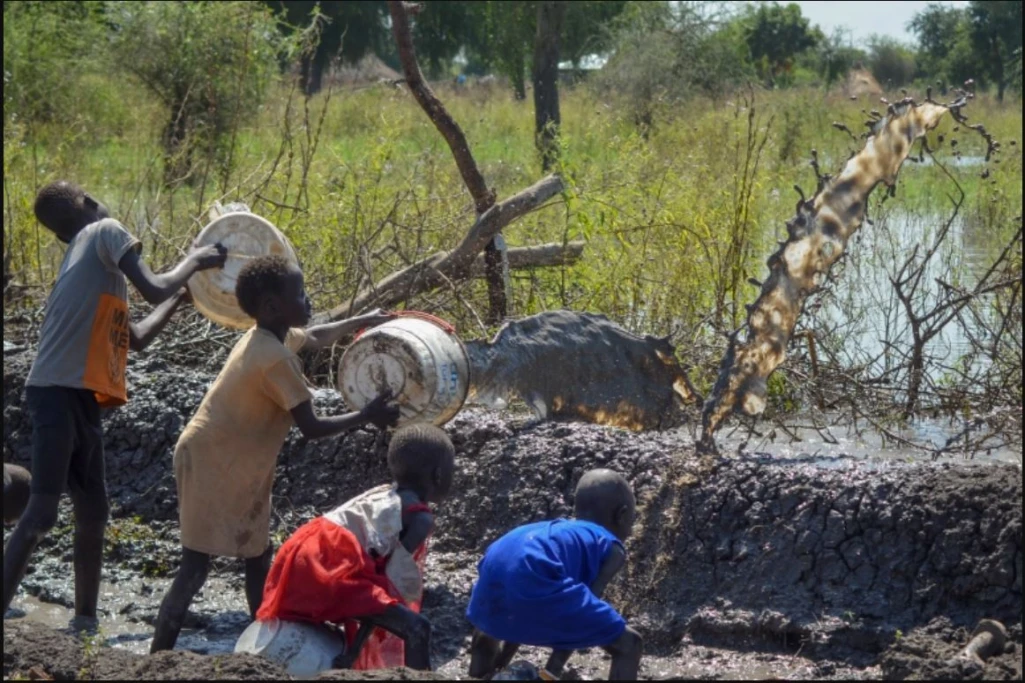
Aid agencies are calling on donors to reinvest in South Sudan to avert a possible humanitarian catastrophe.
Save the Children and the UN Refugee Agency, UNHCR, said the humanitarian situation has deteriorated in recent months with more than 615,000 people impacted by an unprecedented fourth consecutive year of large-scale flooding, destroying homes, crops, and leading to a spike in malaria and snakebites, particularly among women and children.
According to Save the Children, this is worsened by a dilapidated economy that has seen the South Sudanese Pound fall by nearly 40% this year , coupled by higher food prices linked to the war in Ukraine.
“South Sudan is among five of the most vulnerable countries in the world to climate change, with drought and devastating floods a common feature,” said Jib Rabiltossaporn, Save the Children’s South Sudan Country Director.
“Nearly a decade of conflict, frequent displacements, the impact of the COVID-19 pandemic, food insecurity and multiple disease outbreaks, families and children here are on the brink. We must not leave any one behind,” he underscored.
Aid agencies are said to be struggling to provide food and other humanitarian assistance to millions of people suffering from the devastating drought in the Horn of Africa.
The UNHCR said more people would continue to be displaced by drought and floods – if nothing is done to cushion livelihood.
“Waters have swept away homes and livestock, forced thousands to flee, and inundated large swathes of farmland, worsening an already dire food emergency. Boreholes and latrines have been submerged, contaminating water sources, and risking the outbreak of disease,” said Boris Cheshirkov, UNHCR spokesperson.
UNHCR said it has received only 44% of the nearly $215 million it needs for its South Sudan operation this year.
In a statement, Save the Children urged the international community not to overlook South Sudan or to divert funding to other crises.
It called for increased investments to build on successful and hopeful efforts around flood mitigation that saved lives previously and in flood prevention infrastructures in order to protect lives, livelihoods, and assets in the long-run.
“The first generation of South Sudan children is growing up now and we must not fail them by allowing South Sudan to become a forgotten crisis. When there were warnings of starvation in 2017 and famine was declared in parts of the country, the international community acted to avert a large-scale disaster. We must do that again and no,” Jib Rabiltossaporn stated.
In July, the United Nations Office for Coordination of Humanitarian Affairs said life-saving humanitarian operations have been either suspended, reduced, or will be terminated if the funding situation remains as it is.
It emphasized, “everything including protection of women and girls, food, nutrition, and shelter, is needed.”
Through the Humanitarian Response Plan, OCHA requested for $1.7 billion to target 6.8 million people with life-saving assistance and protection services.